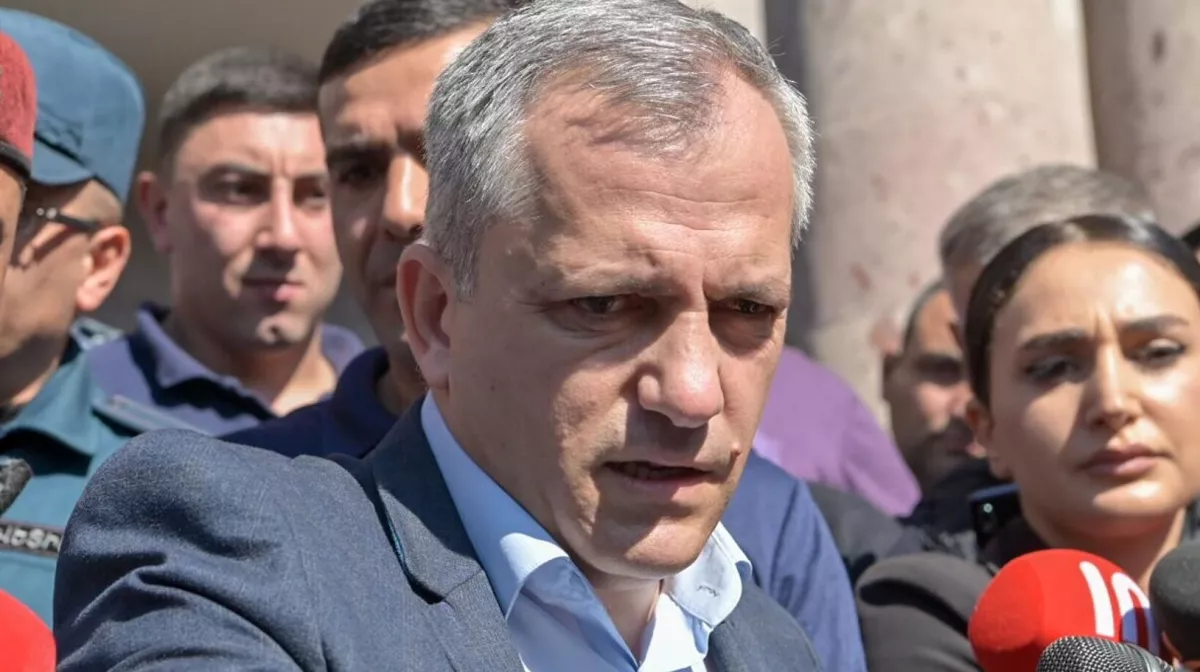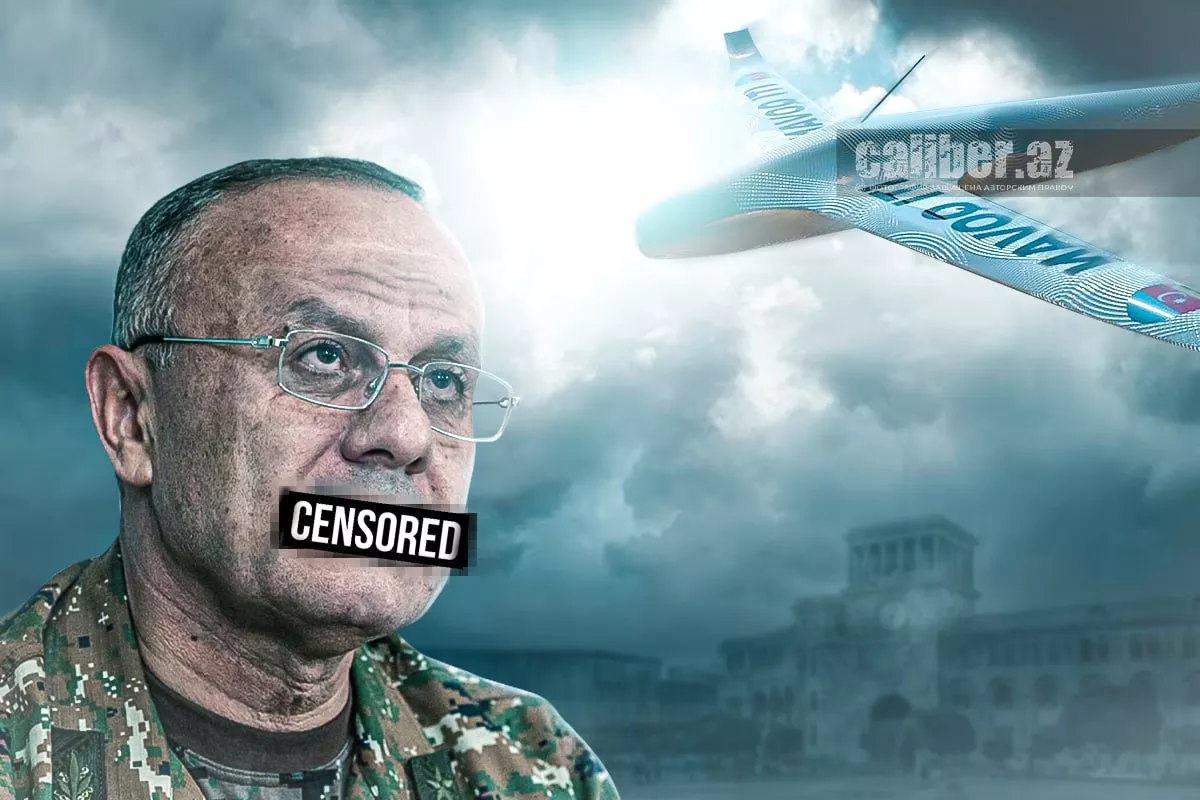Revanchist fever Armenian opposition dreams of “Miatsum”
Recently, various opposition forces in Armenia have noticeably stepped up their promotion of an anti-government agenda in the country. In particular, the “I Have the Honour” faction in the National Assembly—formed by Serzh Sargsyan’s Republican Party and the “Homeland” movement led by former National Security Service chief Artur Vanetsyan—has been active in this area.
On September 25, the faction’s nominee for prime minister, David Hambartsumyan, called for a change of power in Armenia. He said, “Nikol Pashinyan must be removed from leadership” and urged Armenian society to “act immediately in this direction.”
“As a result of the actions of Nikol and his team, Armenia has already suffered numerous losses. Every next concession could prove fatal for our country,” Hambartsumyan stated.
Thus, opponents of the current prime minister’s policies, obsessed with the idea of a no-confidence vote, continue to sow revanchist sentiments in the country, citing the alleged “surrender” of Karabakh to Azerbaijan and the “violation of the rights of Karabakh Armenians.”
In a similar vein, former leader of the Karabakh separatists, Samvel Shahramanyan, spoke to journalists at Yerablur, claiming that “the issue of Karabakh cannot be considered resolved as long as the Karabakh people are deprived of the opportunity to return to their homes.”

First, let us remind Shahramanyan that it was he who, in September 2023, following the successful counter-terrorist operation by the Azerbaijani Armed Forces, signed a decree dissolving all state institutions and organisations of the “NKR”.
As for his “concern for the fate of Armenians,” official Baku offered residents of Karabakh of Armenian descent the opportunity to integrate into Azerbaijani society by accepting Azerbaijani citizenship and abiding by the laws of the Azerbaijani state. In this case, they would have been granted all the rights enjoyed by holders of passports bearing the coat of arms of the Republic of Azerbaijan. However, they chose to leave, which was their voluntary decision.
This fact is documented in the UN mission report, which confirms that there was no persecution of Armenians or “ethnic cleansing” against them. This means that the Armenians who left Karabakh did so of their own free will, not due to any external pressure—completely refuting the unfounded accusations made by Shahramanyan and other remnants of the separatist movement. That is the first point.
Secondly, in his latest address to the nation in August of this year, Prime Minister Pashinyan, referring to the Armenians who voluntarily left Karabakh, stated: "Overall, this is an issue that only harms peace between Armenia and Azerbaijan. Any attempt to revive it will benefit neither the displaced persons themselves nor the relations between the states, but will only create tension. Therefore, I note: yes, this is a dangerous and harmful topic for a new opportunity for peace."
In other words, the prime minister made it clear that the issue is completely closed and does not appear on the state’s agenda. Consequently, Shahramanyan’s provocative statements on this matter are nothing more than air-time clutter.
The topic of Armenians returning to Karabakh was again pushed at Yerablur on September 27 by another supporter of political chaos in Armenia—former Defence Minister Seyran Ohanyan—who repeated the familiar narrative: "For us, the issue of ‘Artsakh’ is not closed. Baku, through its criminal actions, has aggravated the situation. It must be held accountable for its crimes. It is extremely important to preserve the subjectivity of Nagorno-Karabakh and create conditions for the safe and collective return of Armenians to their homes."

It seems that lame Seyran should be more concerned with his own problems, as Armenian media report that Ohanyan was summoned twice for questioning in connection with a criminal case filed against him for the embezzlement of funds on an especially large scale.
In addition, he is also accused of attempting to overthrow the constitutional order in Armenia, related to the events of March 1, 2008, when, following the presidential elections, the opposition led by Levon Ter-Petrosyan organised protests against the election results. According to the authorities, the former minister exceeded his official powers using force, which led to serious consequences. For such actions, the law provides for imprisonment ranging from 4 to 8 years.
On the other hand, the Second Karabakh War stripped him of the image of a “commander” that he had supposedly “earned” through his personal involvement in the bloody events in Karabakh. The Azerbaijani army brilliantly shattered the myth of the “impregnability” of the so-called “Ohanyan Line,” and in November 2020, the Baku Military Court issued a decision to arrest Ohanyan in absentia and place him on the international wanted list.
He is accused of crimes under Articles 103 (“Genocide”) and 107 (“Deportation or forced resettlement of the population”) of the Azerbaijani Criminal Code. The Azerbaijani side has well-founded grounds to assert that the former minister was a direct participant in the mass killings of Azerbaijanis in Khojaly on the night of February 25–26, 1992, and that, under his leadership (alongside other Armenian officials of that time), war crimes were committed, including the destruction of the city of Aghdam.
Thus, the sword of justice has long been hanging over Ohanyan, who exists on the fringe of the Armenian political spectrum, and it will inevitably reach him sooner or later. All his anti-government rhetoric is nothing more than a pathetic imitation of patriotism.
We believe that all these attempts by revanchists, obsessed with creating chaos in the region, are doomed to fail, since the current authorities are firmly focused on signing a final and comprehensive peace agreement with Azerbaijan. Therefore, although we are likely to hear more absurd statements from the opposition before the parliamentary elections, all their words will remain empty noise.








